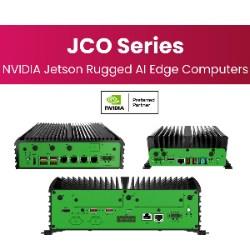CNC Machining for Aerospace Products
Precision CNC machining of aeronautical parts, as an indispensable part of the modern aeronautical industry, provides strong technical support for the manufacture of aircraft with its high-precision and high-efficiency machining characteristics. With the continuous progress of science and technology and the rapid development of the aviation industry, precision CNC machining technology is also constantly optimised and innovated to meet the more demanding aerospace parts machining needs.
Why is CNC important in the aerospace industry?
The following advantages of CNC machining services make them important in the aerospace industry:
①It is the process of synthesising a variety of advanced technology types, including computer technology, communication technology, modern manufacturing technology, digital control technology and so on.
②During CNC machining, the development of a new product and the machining of another batch can be realised by simply changing the settings and parameters of the CNC machine, greatly increasing automation and flexibility.
③Multiple CNC machining can be done automatically on a single machine or in a single clamping, greatly reducing machining time and production cycle time, as well as increasing efficiency.
④CNC machining technology improves the accuracy and precision of aerospace products, reduces or minimises manufacturing errors and results in CNC aircraft parts of higher quality and durability.
⑤Most materials for aerospace components need to be cut and machined during the manufacturing process.
CNC Aircraft Part Features and Application
What are aerospace products? Aircraft can be classified by structure into fuselage, engines, on-board equipment and components, including wings, large wall and tail frames, casings, valve bodies, hydraulic valves, optical tubes, rotor blades, fasteners, connectors, etc.
①Aircraft engine parts: Aircraft engine is one of the core components of the aircraft, the machining accuracy and performance of its parts directly affect the performance and safety of the entire aircraft.
②Fuselage Structural Components: Structural components are the backbone of the aircraft and are subject to a variety of complex loads. Precision CNC machining technology enables high-precision machining of fuselage structural parts, such as beams, frames, plates and other components, to ensure the stability and reliability of their dimensions and shapes.
③Avionics equipment parts: With the continuous development of avionics technology, avionics are more and more widely used in aircraft. Precision CNC machining technology enables high-precision machining of avionics parts, such as circuit boards, connectors and other components, to ensure their accuracy and reliability.
The main features of CNC machining of aerospace parts are as follows:
①High performance: use of new hard-to-machine materials such as titanium
②High Precision: Aerospace parts require a high degree of precision, and any small error may affect the performance and safety of the entire aircraft. Precision CNC machining technology meets the aerospace industry's need for high precision by machining in the micron level of accuracy, ensuring that the size and shape of the part is exactly as designed.
③High Efficient: Precision CNC machining technology can greatly improve productivity by automating and controlling the machining process. After one programming, the CNC machine can run continuously, reducing manual intervention time and increasing production speed.
④Flexibility: Parts in the aerospace industry are varied and complex in shape. Precision CNC machining technology can be quickly adapted to the machining needs of different parts by changing tools and adjusting the programme, without the need for cumbersome manual adjustments, and is suitable for small batch and multi-species production modes.
⑤Lightweight: Extensive use of thin-walled structures.
⑥Consistency: In mass production, part consistency is critical. Precision CNC machining technology ensures that the machining parameters of each part are exactly the same, avoiding quality fluctuations caused by human factors, thus ensuring product consistency and stability.
⑦Reliability and economy: Increasingly stringent quality and cost controls.
⑧Environmental protection and energy saving: The future of precision CNC machining of aerospace parts will pay more attention to environmental protection and energy saving. Adopting more energy-saving and environmentally friendly materials and processes to reduce resource waste and environmental pollution and realise green manufacturing.
In summary, precision CNC machining of aviation parts, as one of the important technologies in the modern aviation industry, provides strong technical support for the manufacture of aircraft with its high-precision and high-efficiency machining characteristics. With the continuous innovation and progress of technology, the future of precision CNC machining of aviation parts will move towards the direction of intelligence, automation, high-speed and high-precision, multi-axis and environmental protection and energy saving, injecting a new impetus for the development of the aviation industry.
Featured Product

JCO Series: NVIDIA Jetson Rugged AI Edge Computers
The JCO Series is a line of NVIDIA Jetson rugged AI edge computers. Unlike standard CPUs, the JCO series employs NVIDIA Jetson-Orin modules, introducing an ARM-based SOM (System-on-Module) architecture with CPU, GPU, and RAM on the same module. This integration brings about significant AI performance right to the edge, coupled with a rugged, fanless design suitable for enduring extreme environments. This series highlights low power consumption (7-60 watts) yet delivers high AI performance up to 275 TOPS, a feat difficult for typical x86 solutions to match. The integration of customizable EDGEBoost IO technology and out-of-band remote management features ensures advanced connectivity and maintenance capabilities, solidifying the JCO Series as an essential solution for mission-critical deployments such as AGV & AMRs, security & surveillance, industrial automation, and industrial IoT. With UL listed, E-Mark, FCC, and CE certifications, the JCO Series meets the highest industry standards for ultimate safety and reliability.
